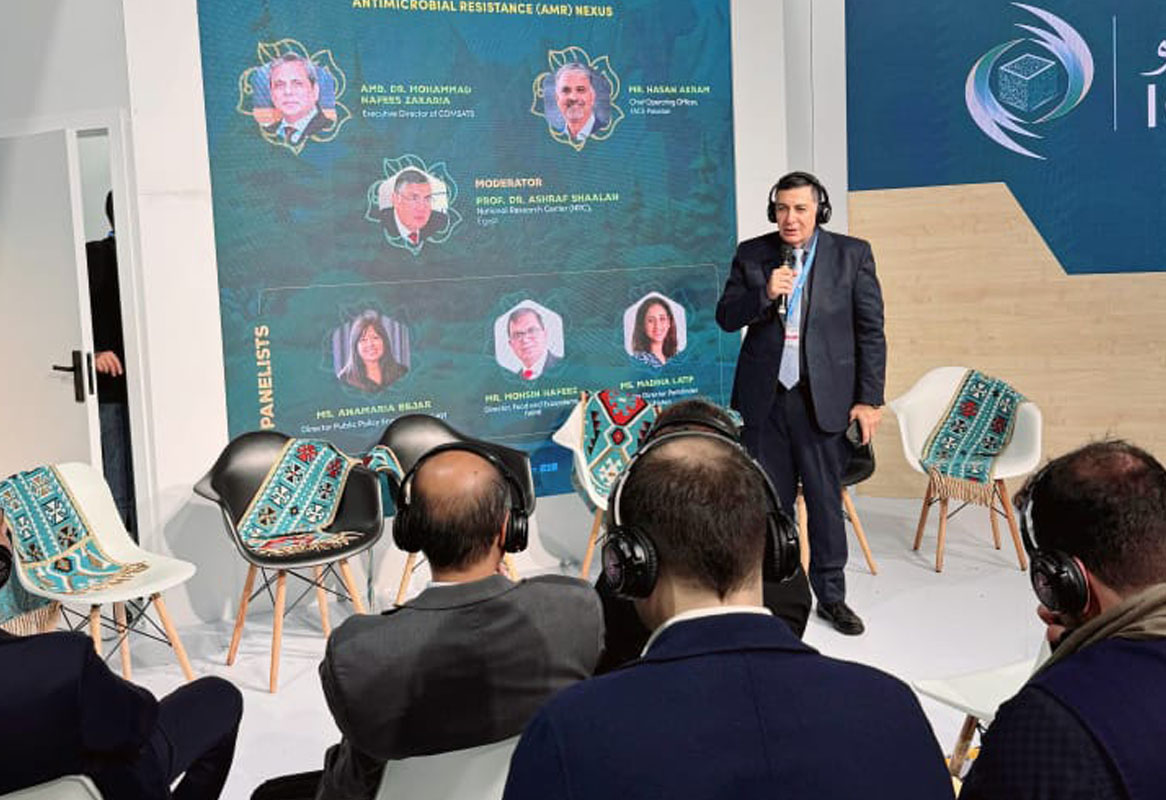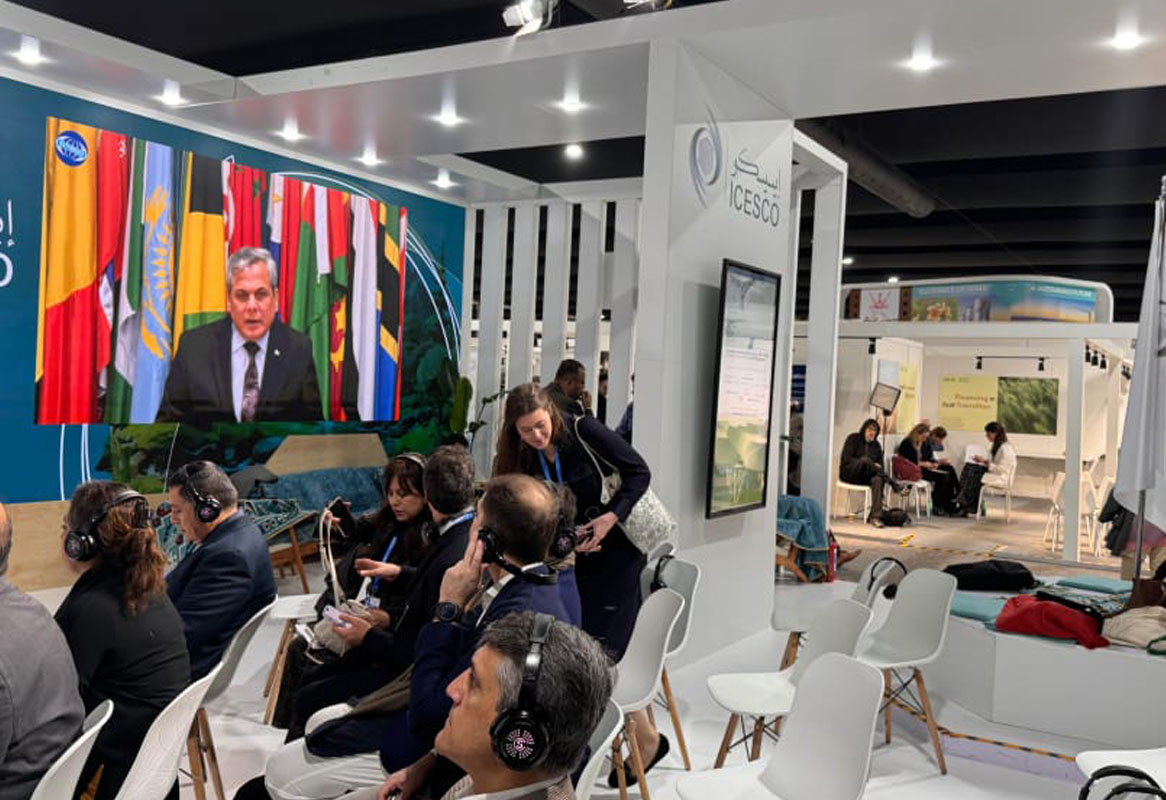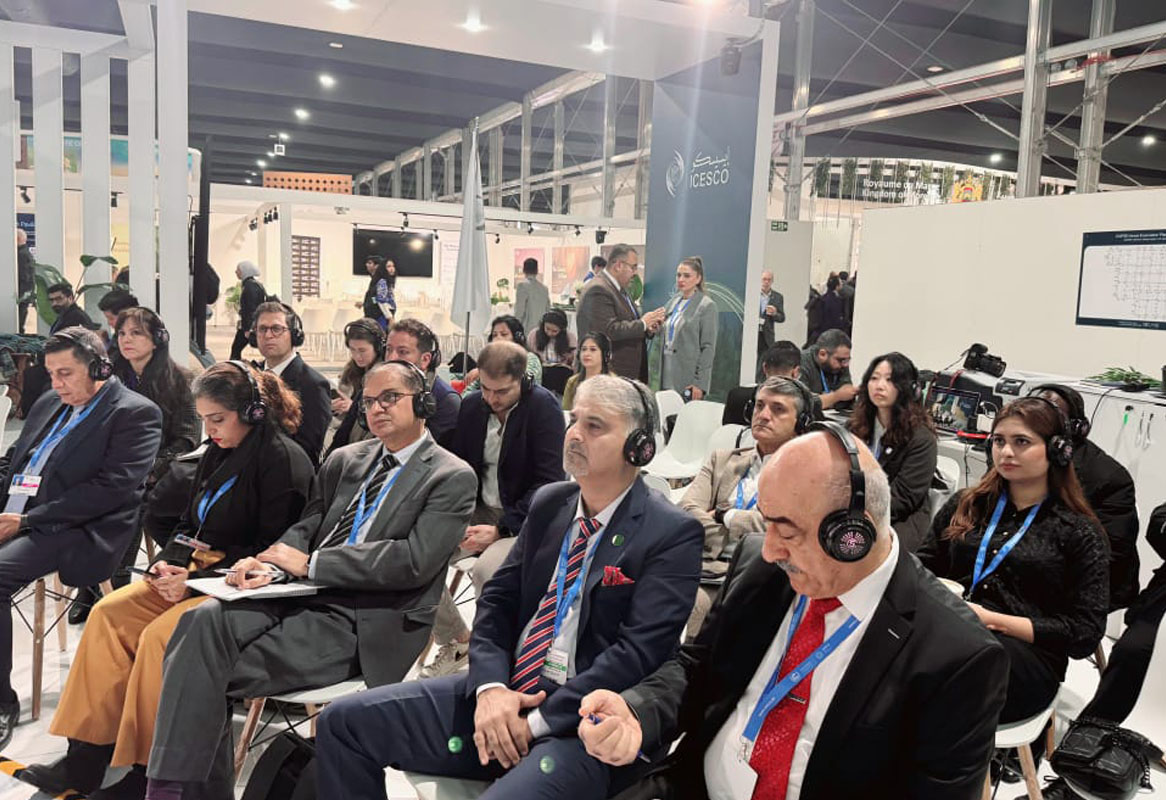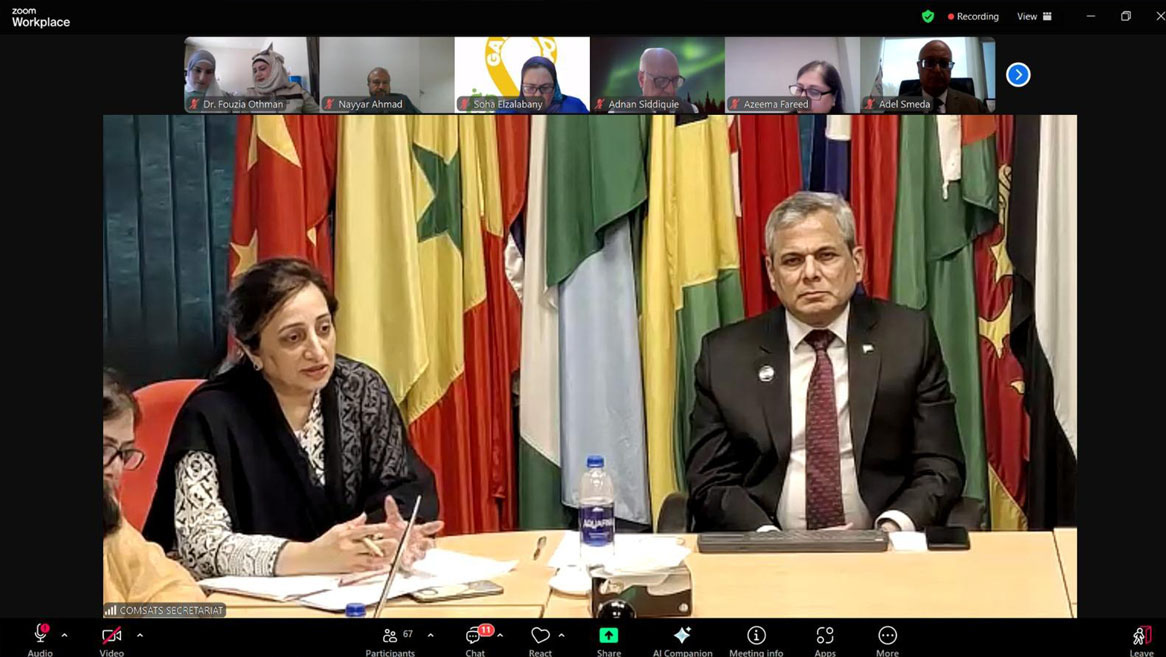November 18, 2024. Recognizing the interlinked global challenges of Climate Change and Antimicrobial Resistance (AMR) – both independently critical and collectively forming an “alarming alliance” – the Commission on Science and Technology for Sustainable Development in the South (COMSATS) organized a panel discussion titled ‘Climate Change – Antimicrobial Resistance (AMR) Nexus’.
The event, held at the ICESCO Pavilion on Day 8 of COP29 in Baku, aligned with thematic focuses on Human Development, Health, Education, and Children and Youth. It was organized in collaboration with the Islamic World Educational, Scientific and Cultural Organization (ICESCO), COMSATS Centre of Excellence in Egypt, the National Research Centre (NRC), and the Food Security and Agriculture Centre of Excellence (FACE), Pakistan.

The discussion aimed to spotlight the exacerbating impact of climate change on AMR and the dual economic risks posed by these threats, emphasizing the urgent need for global action. Moderated by Professor Dr. Ashraf Shaalan, Chairperson of the COMSATS Coordinating Council and former President of NRC Egypt, the event featured opening remarks by the Executive Director of COMSATS, Ambassador Dr. Mohammad Nafees Zakaria, and Chief Operating Officer of FACE, Mr. Hassan Akram.
The technical session included insightful contributions from Ms. Anamaria Bejar, Director of Public Policy Engagement, Gavi, The Vaccine Alliance; Ms. Madiha Latif, Country Director, The Pathfinder, Pakistan; and Mr. Mohsin Hafeez, Director of Food and Ecosystems, International Water Management Institute (IWMI). Panelists called for an inter-sectoral approach to address AMR, leveraging WASH (Water, Sanitation, and Hygiene) practices to minimize antibiotic misuse. They stressed a people-centric, preventive health focus and the integration of AMR into national and global climate strategies.

In his opening remarks, the Executive Director COMSATS, Ambassador Zakaria, highlighted the disproportionate burden of climate change and AMR on the Global South, describing AMR as a “silent pandemic.” He urged nations to incorporate AMR strategies into climate agendas, emphasizing the need for interdisciplinary research and cross-sectoral partnerships that unite microbiology, environmental sciences, economics, and public health.
Following the opening address by the Executive Director of COMSATS, the Chief Operating Officer of FACE, Mr. Hassan Akram, underscored the critical need for a “One Health” approach. He emphasized how interconnected human, animal, and environmental health systems are vital in combating infectious diseases and AMR.

The technical session featured diverse perspectives from experts on water quality, vaccination, public health, and gender equity. Mr. Mohsin Hafeez highlighted the alarming state of water quality in developing countries, including Pakistan. He noted that only 36% of Pakistan’s population has access to safe drinking water, while poor sanitation contributes to widespread health vulnerabilities. Citing the 2022 floods, he shared how stagnant water left over one million women at heightened risk of infections and waterborne diseases. Mr. Hafeez stressed the need for multilateral collaboration, robust financial investments in AMR research, and leveraging Water, Sanitation, and Hygiene (WASH) practices to reduce antibiotic misuse.
Ms. Anamaria Bejar elaborated on Gavi’s multi-sectoral efforts in collaboration with WHO and UNICEF to deliver 19 life-saving vaccines across 57 developing countries. She warned against the over-prescription of antibiotics, which exacerbates AMR, and advocated for integrating WASH, nutrition, and immunization practices into health systems to prevent infections and reduce antibiotic reliance.
Ms. Madiha Latif emphasized the dangers of siloed approaches in tackling interconnected challenges like AMR. She highlighted the disproportionately high impact of AMR on women due to biological, cultural, and socio-economic factors and advocated for prioritizing women’s access to sexual and reproductive health rights (SRHR). Integrating SRHR into national strategies, she noted, would strengthen women’s roles across key sectors such as agriculture, water management, and climate change.
The discussion concluded with actionable recommendations to address AMR effectively. These included leveraging key practices such as Water, Sanitation, and Hygiene (WASH), nutrition, sexual and reproductive health rights (SRHR), and immunization to reduce antibiotic use. Emphasis was placed on adopting people-centric, preventive health approaches to combat rising resistance and prioritizing interventions in vulnerable regions and identified hotspot areas. Participants also highlighted the need for robust public-private partnerships to foster inter-sectoral collaboration and deliver sustainable, cross-cutting solutions. Furthermore, the integration of AMR into the national policy frameworks of both Global North and South countries was deemed essential for comprehensive and coordinated action.
The event reflected COMSATS’ steadfast commitment to promoting sustainable socio-economic development and its efforts to combat the dual burden of climate change and AMR.





